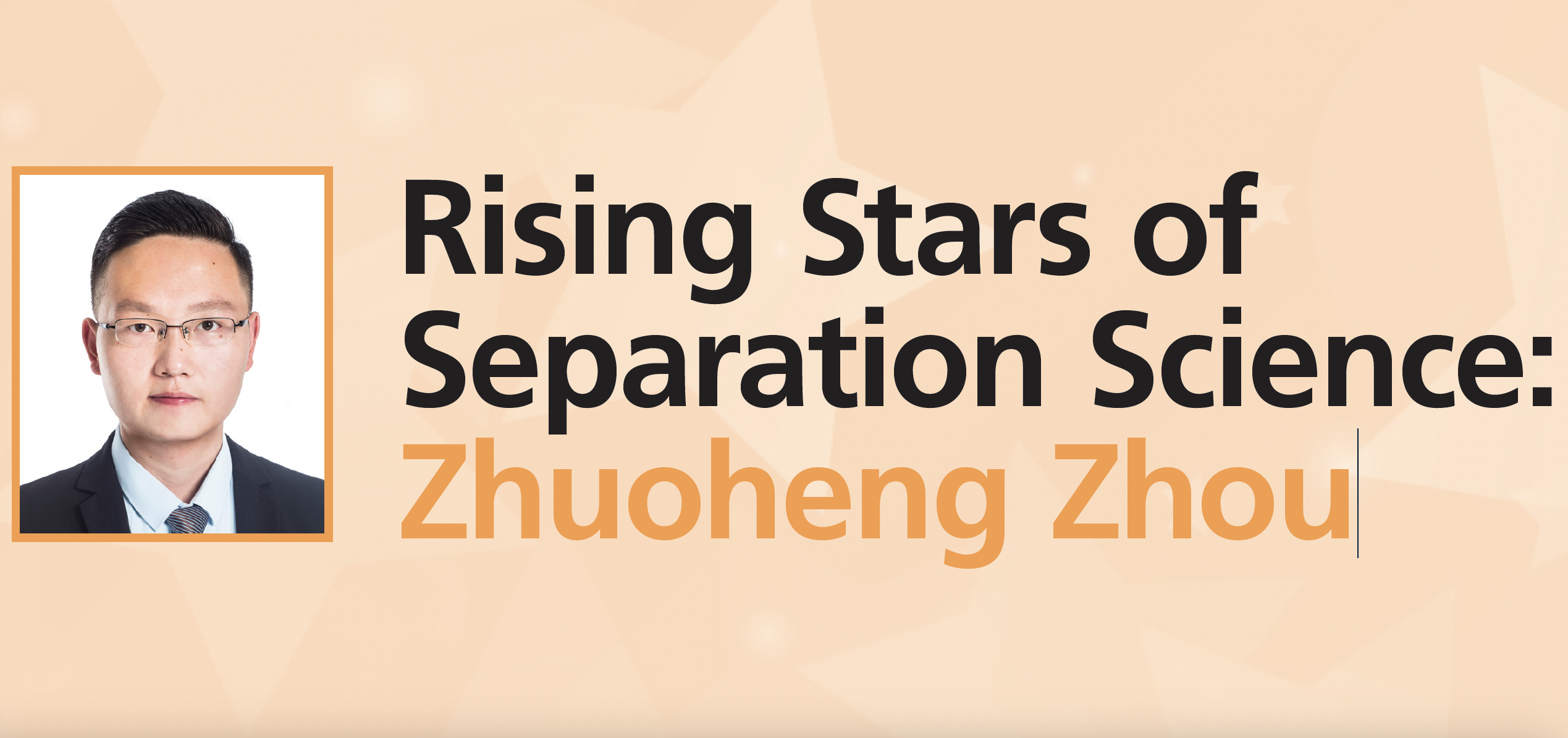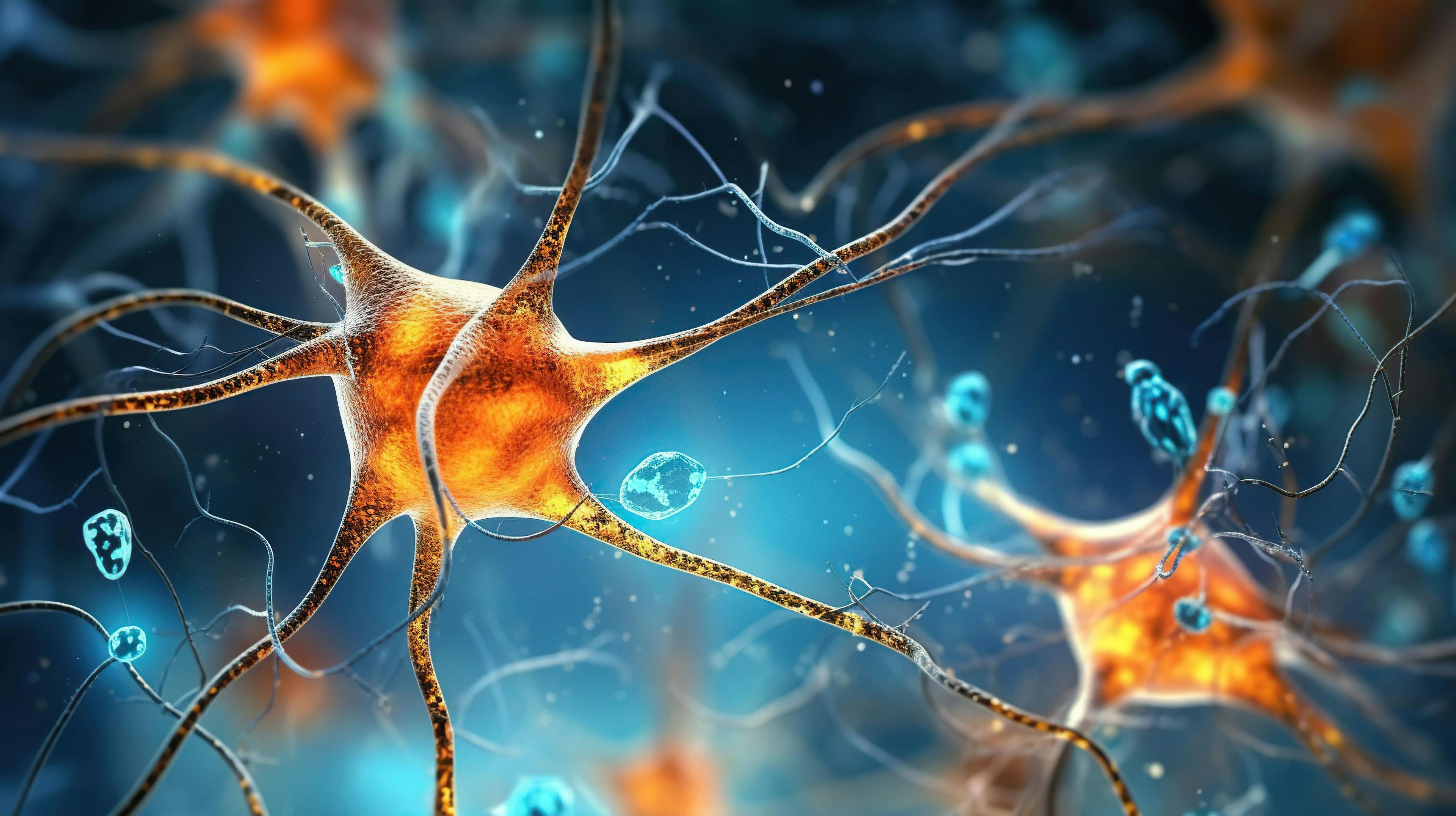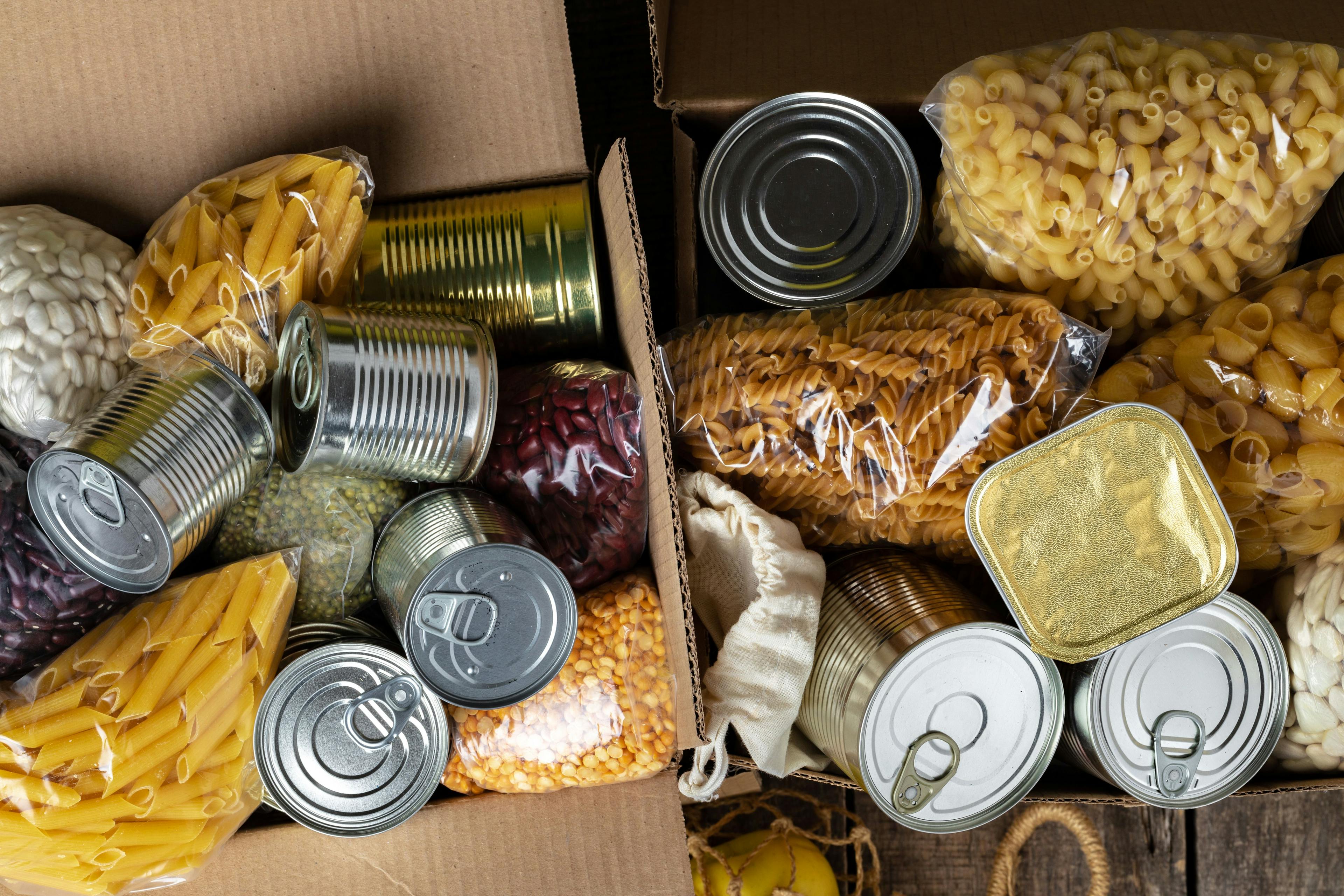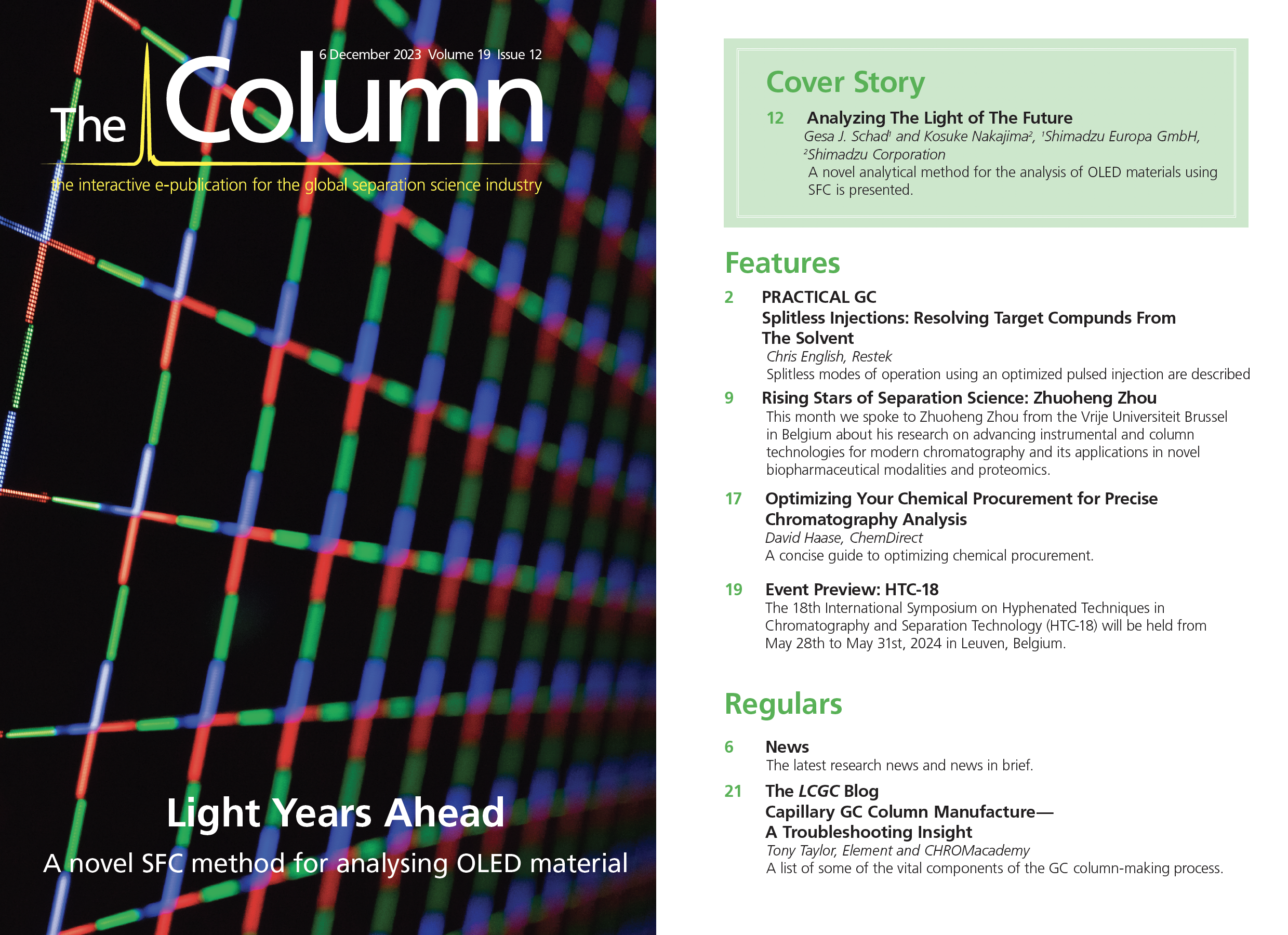HTC-18 Preview
The 18th International Symposium on Hyphenated Techniques in Chromatography and Separation Technology (HTC-18) will be held from 28–31 May 2024 in Leuven, Belgium. The HTC symposium series started in 1990 and is firmly established as a unique meeting place for scientists and practitioners from academia and industry to exchange state-of-the-art knowledge and gather new insights and ideas covering all aspects of chromatography and separation techniques, sample preparation, detection, and data handling. Organized under the auspices of Ghent University (UGhent), the University of Leuven (KU Leuven), the Vrije Universiteit Brussel (VUB), and the Royal Society of Chemistry (RSC), HTC-18 is expected to gather over 250 participants.
Town Hall in center of Leuven at sunset, Belgium | Image Credit: © Mistervlad - stock.adobe.com

The conference will encompass parallel sessions consisting of plenary lectures, keynote lectures, tutorials, and oral presentations. The symposium will also host an attractive technical exhibition where vendors will present their newest instruments and developments, topped with technical seminars.
Techniques to be covered include the fundamental and practical aspects of liquid-phase (LC) and gas chromatography (GC), including multidimensional LC, multidimensional GC, supercritical fluid chromatography (SFC), LC–mass spectrometry (MS), and GC–MS. The programme will also include topics such as automated sample preparation, online analyzers and sensors, electro-driven separations, ion-mobility and native mass spectrometry, emerging detectors and separation modes, method development and artificial intelligence, column technology and stationary-phase developments, system design and optimization, miniaturization, lab-on-a-chip, 3D printing, and data processing, mining, and curation. The symposium will also address bottlenecks and describe trends and new technologies for a wide range of applications, including (bio-) pharmaceuticals, medical diagnostics and clinical applications, forensic analysis and doping control, food analysis and safety, environmental analysis, energy, green approaches, high-throughput analysis, -omics (lipidomics, metabolomics, proteomics), and biomarker discovery, as well as modern industrial applications and natural products.
As always, there will be abundant networking opportunities during the conference, with a welcome reception in the University Hall, an informal Belgian beer and food tasting event at the conference venue, the conference dinner in the Great Beguinage, which dates from the 13th century and is listed as UNESCO world heritage, and lots of dissemination activities.
A number of awards will be presented at HTC-18. The HTC Innovation Award, sponsored by LCGC International, will be offered to a researcher with less than 15 years’ experience after obtaining his or her PhD for “a pioneering contribution to the field of separation sciences by introducing new methodologies, new instrumentation, or new techniques in the field, with a strong focus on applicability”. The most innovative oral contribution presented during the conference will receive the HTC‑Award. The most innovative poster contributions will receive the HTC‑Poster Award. The HTC Academy Contest will also be organised for young scientists, sponsored by the Journal of Chromatography A and Journal of Chromatography Open.
Participants are invited to register and submit abstracts for review using the abstract submission menu available on the website: www.htc-18.com. The deadline for oral abstract submission is 15 January 2024. The poster abstract submission deadline is 14 February 2024.
The organisers look very much forward to welcoming you in the historic centre of Leuven!
For more information and registration, visit the HTC-18 webpage at: www.htc-18.com.
Email: info@htc-18.com
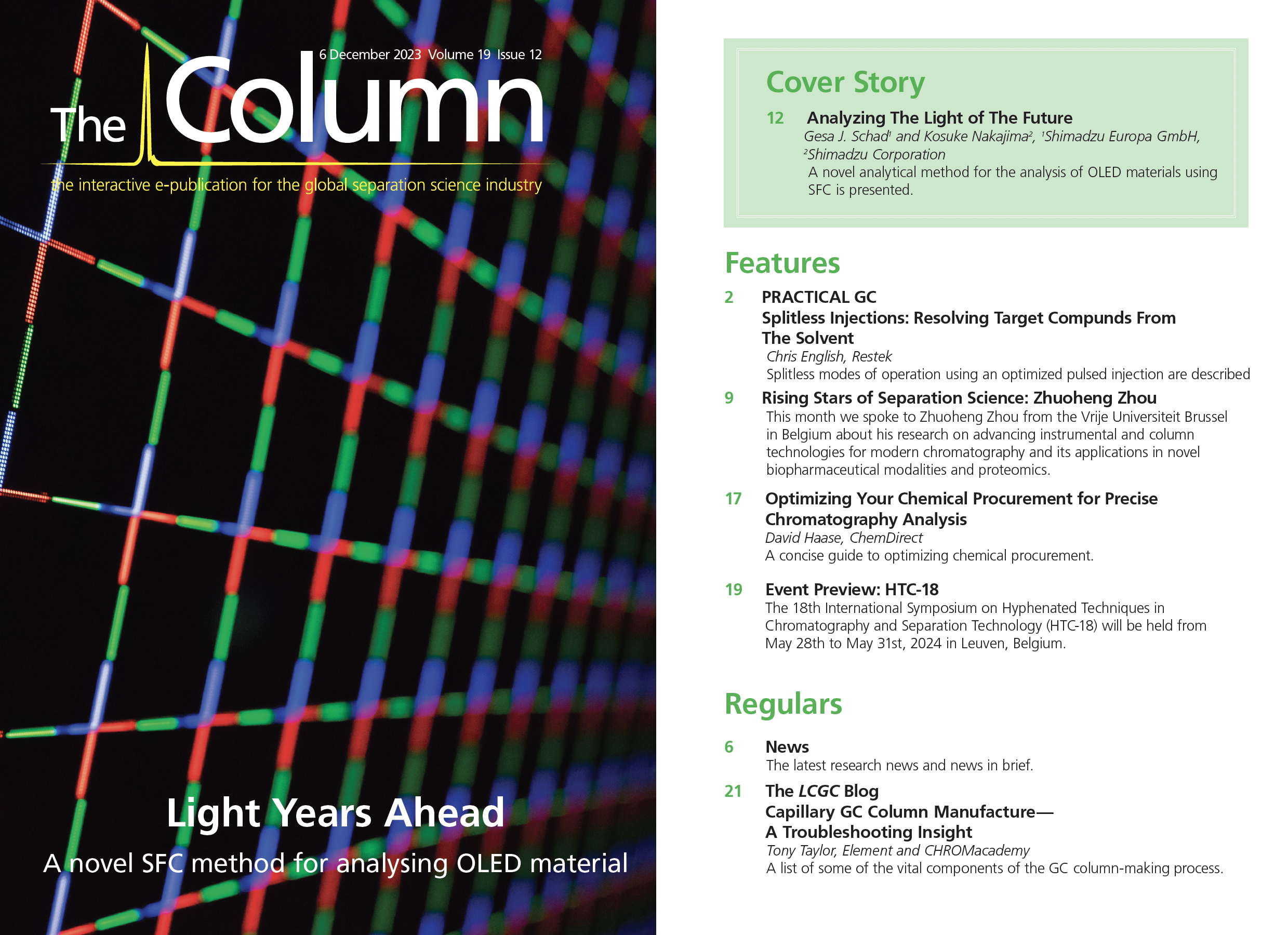
University of Rouen-Normandy Scientists Explore Eco-Friendly Sampling Approach for GC-HRMS
April 17th 2025Root exudates—substances secreted by living plant roots—are challenging to sample, as they are typically extracted using artificial devices and can vary widely in both quantity and composition across plant species.
Sorbonne Researchers Develop Miniaturized GC Detector for VOC Analysis
April 16th 2025A team of scientists from the Paris university developed and optimized MAVERIC, a miniaturized and autonomous gas chromatography (GC) system coupled to a nano-gravimetric detector (NGD) based on a NEMS (nano-electromechanical-system) resonator.
Miniaturized GC–MS Method for BVOC Analysis of Spanish Trees
April 16th 2025University of Valladolid scientists used a miniaturized method for analyzing biogenic volatile organic compounds (BVOCs) emitted by tree species, using headspace solid-phase microextraction coupled with gas chromatography and quadrupole time-of-flight mass spectrometry (HS-SPME-GC–QTOF-MS) has been developed.



